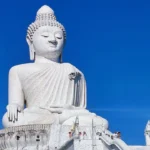Over the weekend, The New York Times published an article suggesting young people in Saudi Arabia are finding “freedom” on their smartphones. “Young Saudis are increasingly relying on social media to express and entertain themselves, earn money and meet friends and potential mates,” Ben Hubbard reported.
To his credit, Hubbard added a crucial caveat about what this newfound “freedom” means in a theocratic monarchy. “The power of social media to effect change remains limited in a society lacking political rights,” he wrote. “A few officials have been fired after being caught on video behaving badly, but the country is still ruled by an absolute monarch, the 79-year-old King Salman. And powerful clerics run the justice system and oppose social change.”
According to Human Rights Watch and Amnesty International, however, Saudi Arabia’s government uses malicious spyware to target activists, and, as Hubbard and others have reported previously, it hunts down, silences and flogs bloggers who dare to be critical of the government.
“What Hubbard writes is true: mobile tech has been really important in the Kingdom of Saudi Arabia for connecting people internally to one another,” said Jillian C. York, the director for international freedom of expression at the Electronic Frontier Foundation, which runs a hub on digital citizenship in the Arab world. “At the same time, the risks are high and Saudis are often using tools and apps that easily surveilled by the government.”
In his piece, Hubbard argued that Saudi Arabia has been less repressive than some other authoritarian regimes in allowing its people to access Western social media platforms. “Unlike China and Iran, Saudi Arabia has not blocked sites like Facebook and Twitter, although it occasionally prosecutes those seen as insulting public figures or Islam,” he wrote. “The Saudi monarchy appears to have decided that the benefits of social media as an outlet for young people outweigh the risk that it will be used to mobilize political opposition, which it is quick to punish, harshly.”
It’s true that like Saudi Arabia has fewer checks on Internet freedom than China, where most Western social media services are banned. But the broad thrust of Saudi Internet policy — allowing some freedom while cracking down quickly on political dissent — creates the same end result: a giant cage with hidden bars. Like China, Saudi Arabia allows its people to express mild dissent online but censors stronger critiques and cracks down on efforts to organize collective actions to challenge the government’s power. Their strategies are different, but it’s a difference of degree, not kind.
In his story, Hubbard suggested that the “spread of mobile technology is driving nothing short of a social revolution in the lives of young people,” enabling them escape government censors and access blocked or banned entertainment programming.
“I’d say Saudi Arabia is among the top five in the world when it comes to online censorship,” York said. She also pointed out the severity of consequences for Saudis who express themselves too freely, like blogger Raif Badawi — a free-speech advocate who questioned the central role of religion in the country and was sentenced to 1,000 lashes and 10 years in prison — and human rights lawyer Waleed Abu Khair — who was sentenced to 15 years in prison after exercising his right to freedom of expression.
The 2014 “Freedom on the Net” report by Freedom House, a Washington, D.C.-based organization that monitors freedom of the press and human rights around the globe, also indicates that there may be more caveats to the freedom in Saudi Arabia than the Times implied. The report, for example, highlights a counterterrorism law passed last year that “criminalizes online expression that promotes atheism, insults the state’s reputation, harms public order, or threatens state security, among other things.” Under this law, the Saudi government can prosecute anyone who dissents, peacefully or otherwise.
Hubbard did not immediately respond to a request for comment.
Technological changes that offer young people more opportunities to express themselves than may exist offline in a conservative country make for an alluring storyline. Whether this one has a happy ending remains to be seen.
[“source-huffingtonpost.com”]







